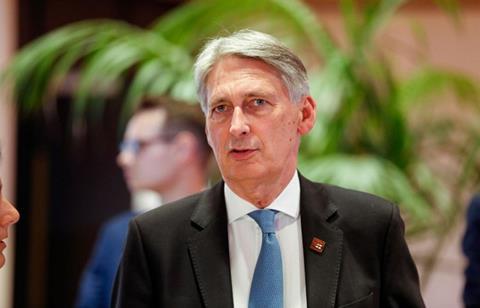
Autumn Budget 2018: The government has announced increased investment for initiatives within its Industrial Strategy in order to improve productivity across the UK.
Chancellor Philip Hammond (pictured) confirmed in his Autumn Budget 2018 speech, delivered at the House of Commons on Monday 29 October, that research and development will receive an additional £1.6 billion of funding. In addition, the Industrial Strategies Challenge Fund, which aims to support technologies of the future, will receive a £1.1 billion investment. This includes up to £121 million for the Made Smarter programme, which seeks to support the transformation of manufacturing through digitally-enabled technology, and up to £78 million for the Stephenson Challenge. This initiative supports innovation in electric motor technology.
In alignment with this, Jason Furman, an American economist and professor at Harvard University's Kennedy School of Government and senior fellow at the Peterson Institute for International Economics, will lead a review of competition in the digital economy.
To further raise productivity, the 2018 Budget also addresses management capabilities, based on the government’s work with the Be the Business movement and its findings from the Industrial Strategy Business Productivity Review. Therefore, the government will implement a Small Business Leadership Programme, delivered in partnership with business schools and leading organisations in England. In 2019-2020, 2,000 places will be delivered, with a target of training 10,000 individuals a year by 2025.
As part of this commitment, the government will also invest £20 million in 2019-2020 to support local peer-to-peer networks focused on business improvement and invest up to £25 million in to the Knowledge Transfer Partnerships scheme, placing more than 200 additional graduates and academics with relevant skills into firms to translate their research insights into business growth.
The government will further invest £235 million to support the development and commercialisation of quantum technologies; this includes up to £70 million from the Industrial Strategy Challenge Fund and £35 million to aid a new national quantum computing centre. The government believes that a focus on these technologies could impact global issues, such as disease and climate change, by transforming capabilities in computing, sensing and communications.
The Budget announcement also confirmed that the government will continue to explore the opportunities and utilisation of artificial intelligence (AI), as well as investigate how this technology and the data gathered can be used. To support this work, the government will invest up to £50 million in a new Turing AI Fellowships scheme, to bring the best global researchers in AI to the UK, and place an additional £100 million in an international fellowship scheme.
The government will also invest £315 million to a new Industrial Energy Transformation Fund, to support businesses with high energy use to transition to a low carbon future and reduce their bills through increased energy efficiency.
The Industrial Strategy aims to boost productivity by backing businesses to create good jobs and increase the earning power of people throughout the UK with investment in skills, industries and infrastructure.
In his speech, Hammond said: “This time I will leave it to the Budget Red Book to set out more detail of the many measures we will take today, including our commitment to technology with £1.6 billion of new investments to support our modern industrial strategy, from nuclear fusion to quantum computing, and £150 million for fellowships to attract the brightest talent to these shores from around the world so that our scientific research continues to lead the world. And, our commitment to infrastructure, expanding the National Productivity Investment Fund once again, to over £38 billion by 2023-2024.”











